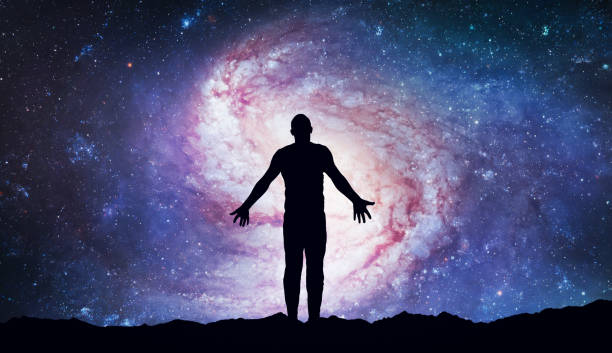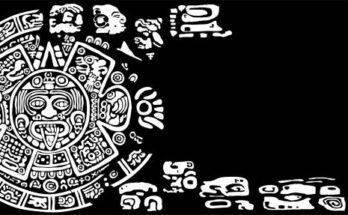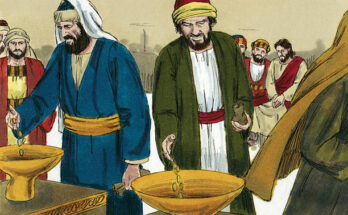The relationship between religion and morality has been a topic of profound philosophical, theological, and ethical inquiry throughout human history. While some argue that morality is deeply intertwined with religious beliefs, others contend that it can exist independently of any religious framework. This article aims to delve into the intricate interplay between religion and morality, examining whether they are inherently connected or if they can exist as separate entities.
Defining Religion and Morality
Before delving into their relationship, it is crucial to establish working definitions of both religion and morality. Religion, in a broad sense, encompasses organized systems of beliefs, practices, and values cantered around a higher power or transcendent force. Morality, on the other hand, refers to the principles of right and wrong conduct, often involving ethical judgments and decision-making.
Connected Perspectives: Religion as the Source of Morality
 (Photo from iStock)
(Photo from iStock)
One perspective posits that religion serves as the primary source and foundation of morality. Many of the world’s major religions, including Christianity, Islam, Judaism, Hinduism, and Buddhism, provide followers with moral codes and commandments that guide their behaviour.
For instance, the Ten Commandments in Judeo-Christian traditions offer a set of moral imperatives, including prohibitions against murder, theft, and false witness. Similarly, the Five Pillars of Islam provide a moral framework for Muslims, emphasizing virtues such as charity, honesty, and compassion.
Moreover, religious narratives often convey moral lessons through parables, stories, and allegories. These stories, which are deeply ingrained in religious traditions, aim to teach followers about virtuous behaviour, consequences of wrongdoing, and the importance of ethical living. The idea here is that religion not only imparts moral guidelines but also reinforces them through narratives that resonate with believers.
Additionally, some argue that religion provides a moral compass by instilling a sense of accountability to a higher power. The belief in divine judgment and an afterlife is thought to encourage individuals to act morally, as they anticipate rewards for virtuous behaviour and consequences for transgressions.
Separate Perspectives: Morality Independent of Religion
Contrary to the notion that religion is the sole source of morality, others argue that moral principles can exist independently of religious doctrines. This perspective asserts that individuals can derive a sense of right and wrong through reason, empathy, social norms, and philosophical reflection, without necessarily adhering to religious beliefs.
Philosophical schools such as secular humanism emphasize the inherent value of human beings and advocate for ethical conduct based on reason and compassion. Adherents of this worldview contend that moral principles can be discerned through critical thinking and a consideration of the well-being of individuals and society.
Moreover, proponents of secular ethics argue that morality can be grounded in principles such as justice, equality. The development of secular ethical frameworks, including utilitarianism and deontology, provides alternative perspectives on moral reasoning that do not rely on religious authority.
Scientific studies exploring the origins of morality also contribute to the argument for its independence from religion. Evolutionary psychology suggests that moral instincts may have evolved as adaptive traits that promote cooperation and social cohesion within human communities.
Complex Interplay: Overlapping and Diverging Paths
 (Photo from iStock)
(Photo from iStock)
In reality, the relationship between religion and morality is complex and multifaceted, encompassing areas of convergence and divergence. It is essential to recognize that individuals within religious communities may draw on both religious teachings and secular ethical reasoning to navigate moral dilemmas.
The Intersection of Religion and Morality
- Shared Values: Many moral principles espoused by religious traditions align with secular ethical values. This shared moral ground suggests that, at a fundamental level, there is convergence between religious and secular understandings of morality.
- Cultural Influence: The intertwining of religion and culture further complicates the relationship between religion and morality. In many societies, religious teachings have played a significant role in shaping cultural norms and ethical standards.
- Personal Beliefs: Individuals often navigate their moral compass by integrating personal beliefs, experiences, and reflections. Drawing from both religious and secular sources. In this way. The boundaries between religious and secular morality become blurred. As individuals construct their moral frameworks based on a combination of influences.
The Divergence Between Religion and Morality
 (Photo from iStock)
(Photo from iStock)
- Ethical Pluralism: The existence of diverse religious and cultural perspectives contributes to ethical pluralism. Where different moral values coexist within a society.
- Secular Ethics: The rise of secular ethics and humanism reflects a growing recognition. That moral reasoning can occur independently of religious beliefs. Secular ethical frameworks, grounded in reason and empathy, provide alternatives for individuals who seek moral guidance outside of religious institutions.
- Moral Disagreements: Disagreements on moral issues within and between religious communities further underscore the complexity. Of the relationship between religion and morality. Individuals within the same religious tradition may hold divergent views on issues such as abortion. Capital punishment, and LGBTQ+ rights, illustrating that religious teachings do not guarantee uniformity in moral beliefs.
Conclusion
The relationship between religion and morality is dynamic and intricate, with both overlapping and distinct dimensions. While some argue that religion serves as the primary source of moral guidance. Others contend that morality can exist independently of religious doctrines. The reality is a nuanced interplay, where individuals draw on a combination of religious. And secular influences to navigate moral complexities.
Recognizing the diversity of perspectives on this matter is crucial for fostering respectful dialogue. And understanding among individuals with different belief systems. In a world characterized by religious and cultural pluralism. Acknowledging the multifaceted nature of morality allows for a more inclusive conversation about ethics and values.
Ultimately, whether one sees religion and morality as inextricably connected or as separate entities, the pursuit of a just, compassionate. And ethical society remains a common goal that transcends religious and secular boundaries. As humanity continues to grapple with moral questions. The evolving dialogue between religion and morality will shape the ethical landscape of our collective future. This will tell us about religion and morality.




